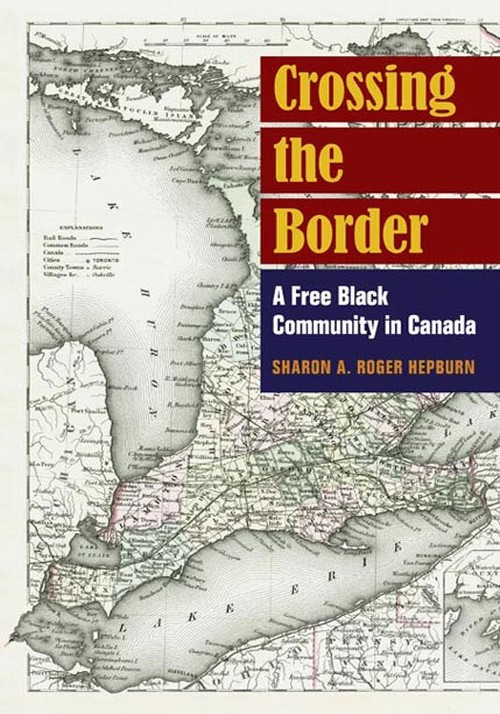
Crossing the Border
About the Book
In 1849, the Reverend William King and fifteen once-enslaved people he had inherited founded the Canadian settlement of Buxton on Ontario land set aside for sale to Blacks. Though initially opposed by some neighboring whites, Buxton grew into a 700-person agricultural community that supported three schools, four churches, a hotel, a lumber mill, and a post office.Sharon A. Roger Hepburn tells the story of the settlers from Buxton’s founding of through its first decades of existence. Buxton welcomed Black men, woman, and children from all backgrounds to live in a rural setting that offered benefits of urban life like social contact and collective security. Hepburn’s focus on social history takes readers inside the lives of the people who built Buxton and the hundreds of settlers drawn to the community by the chance to shape new lives in a country that had long represented freedom from enslavement.
About the Author
Sharon A. Roger Hepburn is a professor and chair of the Department of History at Radford University.Reviews
"The book is a treasure trove of information. . . . Crossing the Border is recommended for students at both the high school and college levels, and the general reading public."--Multicultural Review"Recommended."--Choice
"Hepburn's book joins the ranks of the very best accounts of how thirty thousand runaway slaves fled Southern U.S. plantations in search of new lives in Canada, and once there, built viable settlements despite overwhelming odds against them. We are immensely grateful for this well-researched and well-written account."--H-Canada
"Crossing the Border is a thorough study that features a highly readable narrative drawn from primary sources including Canadian census returns, Elgin Association records, church histories, family papers, newspaper articles, and personal correspondence."--Michigan Historical Review
"Crossing the Border is essential reading for all serious students of African American history."--Journal of American History
Blurbs
"Neither a fairy tale of living happily ever after nor a litany of disappointments, Crossing the Border tells of real people who changed their lives and made new ones under the North Star."--David I. Macleod, professor of history, Central Michigan University
"Sharon Hepburn's community study of Buxton, Canada, significantly adds to our understanding of the diverse conditions confronting free blacks throughout the entire area north of Dixie. Crossing the Border shows that Canadian government policies were more accepting of blacks than those in the adjacent Old Northwest, and that Buxton afforded greater economic opportunities, more favorable race relations, and better educational access than in virtually all other areas. Hepburn's work will introduce scholars to the different character of opportunities afforded free blacks not just in Buxton and Canada West but throughout the entire trans-Appalachian West."--Stephen A. Vincent, author of Southern Seed, Northern Soil: African-American Farm Communities in the Midwest, 1765-1900




